Why children’s authors are taking on the refugee crisis
More than a dozen new and forthcoming titles feature young Muslim refugees as protagonists, ranging from picture books to novels that delve into the darker issues of the refugee crisis
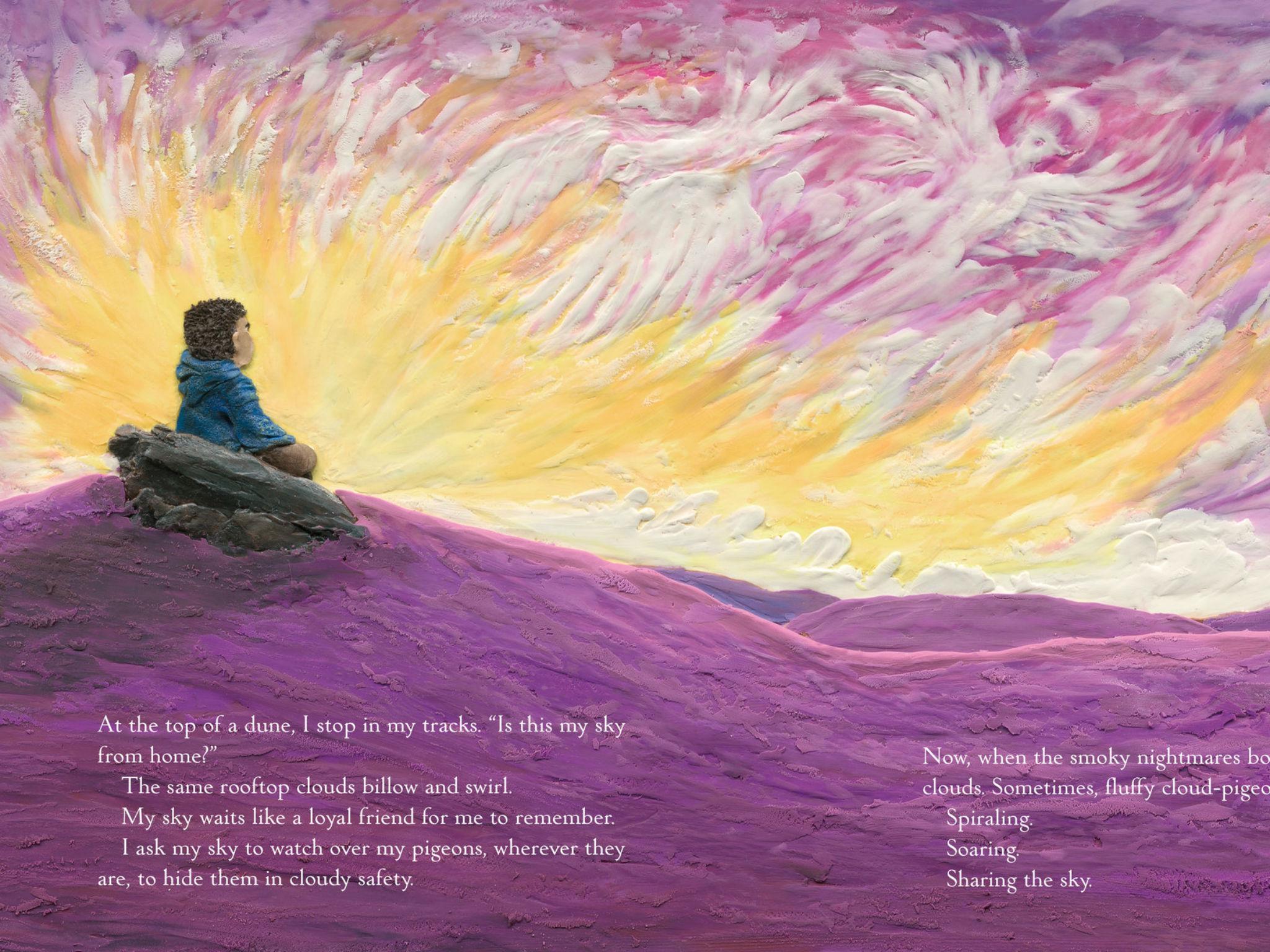
Some of the most shocking images from the crisis in Syria have been photographs of children: the body of a drowned toddler lying on a Turkish beach, the expressionless five-year-old boy from Aleppo, shellshocked, bloodied and ash-covered, after being pulled from the rubble of a bombed building.
Now, a number of children’s books authors, moved by these images and other news reports, are taking on the subject in fiction to humanise and personalise the ongoing conflict for young readers. More than a dozen new and forthcoming titles feature young Muslim refugees as protagonists, ranging from picture books aimed at readers as young as four to a cluster of novels for teenagers that delve into the murkier aspects of the refugee crisis. Some of the books touch on challenging issues such as the rise of Isis and the sectarian rift between Sunnis and Shias.
Suzanne Del Rizzo’s picture book My Beautiful Birds is based on an article she read about a Syrian boy living in Jordan in the Zaatari refugee camp who had tamed wild birds. In her book, she writes from the perspective of Sami, a boy who trains pigeons and must leave his birds behind when his family evacuates from their home in Syria and walks to a refugee camp in Jordan. There, Sami finds solace in caring for wild birds.
To research her young adult novel A Land of Permanent Goodbyes, the novelist Atia Abawi travelled to Lesbos, Greece, and spoke to Syrians in a refugee camp. Those conversations helped shape her book, which centres on a Syrian family that escapes an ISIS stronghold for Istanbul and then Greece.
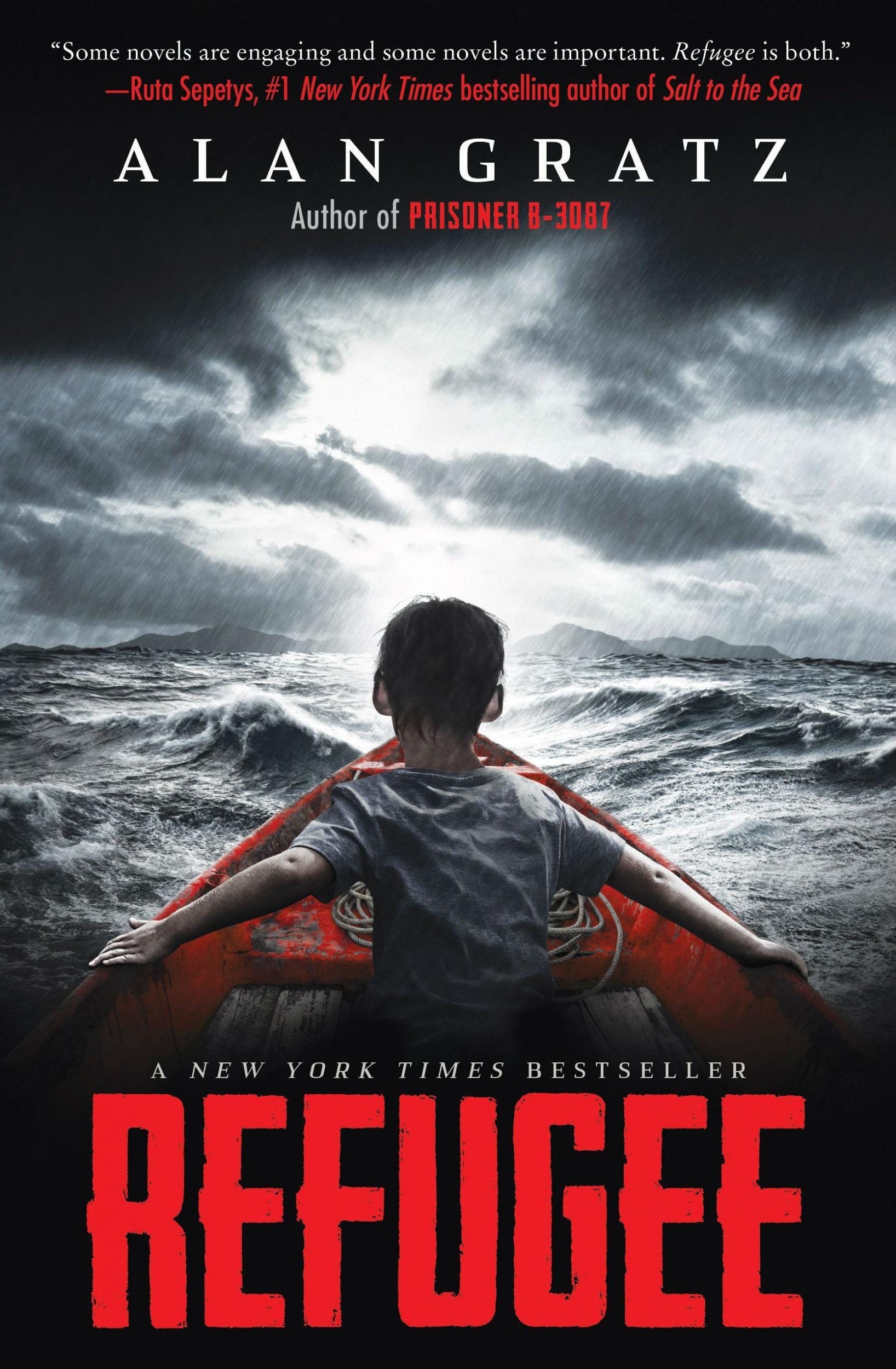
In Alan Gratz’s novel Refugee, for eight to 12-year-olds, a young boy named Mahmoud Bishara flees the violence in Aleppo after his family’s home is destroyed, and has to contend with smugglers and militants as his family charts a treacherous course through Turkey and across the Mediterranean to Europe. His younger brother, Waleed – based on Omran Daqneesh, the Syrian boy famously photographed after the bombing – is too traumatised to even cry.
“I wanted to make individual refugees visible and turn statistics into names and faces that kids could relate to,” Gratz says.
The wave of children’s books about Muslim asylum seekers is arriving amid the worst refugee crisis the world has seen since World War II, as millions of civilians – many of them children – flee the wars and insurgencies in Syria, Iraq and Afghanistan. The Syrian civil war alone has uprooted more than two million children, according to Unicef.
“It’s really important to engage children with the world as it is, and the world right now is a very complicated place,” said Zareen Jaffery, executive editor of Salaam Reads, a Muslim-themed children’s imprint at Simon & Schuster.
Some of these new novels explore perilous journeys, as refugees entrust their lives to smugglers and navigate war zones controlled by rebel groups and extremists. In Escape From Aleppo, a novel by NH Senzai for eight to 12-year-olds, a Syrian girl named Nadia flees her country for Turkey after civil war breaks out after the failed democratic uprising.
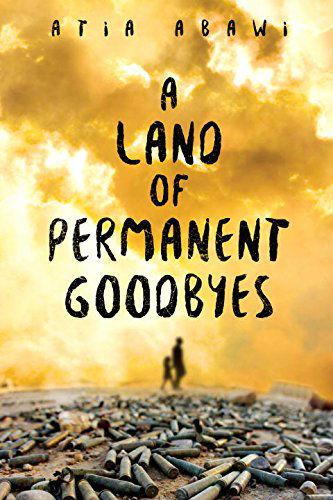
Others focus on the discrimination and sense of displacement faced by Muslim asylum seekers. The Lines We Cross, a young adult novel by Randa Abdel-Fattah released by Scholastic in May, centres on a teenage Muslim refugee from Afghanistan who is accosted by Islamophobes and nationalists in Australia, where her family runs a restaurant. The girl, Mina, develops a crush on a boy whose parents are anti-immigration, anti-Muslim activists. “In a political environment where there’s such a demonisation of refugees, I wanted readers to understand what their lives are like,” says Abdel-Fattah, who lives in Sydney.
Gratz says that he expected a book like Refugee, an unflinching and sympathetic look at people whose lives are upended by war and oppression, might repel some readers. “There certainly will be people who will assume that I wrote it to push an agenda,” he said.
Refugee, which Scholastic released in late July with a first printing of more than 200,000 copies, originally began as a novel about the St Louis, a German ocean liner carrying nearly 1,000 Jews fleeing Hitler during World War II. The ship was turned away from Cuba and the United States and returned to Europe, where many of the passengers died in the war. Gratz saw disturbing parallels between the historical episode he was researching and the current plight of Syrian refugees, and decided to weave together the stories of three children: a Jewish boy whose family tries to escape Nazi Germany on the St Louis; a Cuban girl who leaves Havana in a raft during the island’s food shortages in 1994, and Mahmoud, the Syrian boy whose family escapes to Europe.
When he finished the novel this year, Gratz added an author’s note that addresses President Trump’s travel ban, and says that the United States has accepted less than one percent of the roughly five million refugees who have fled Syria.
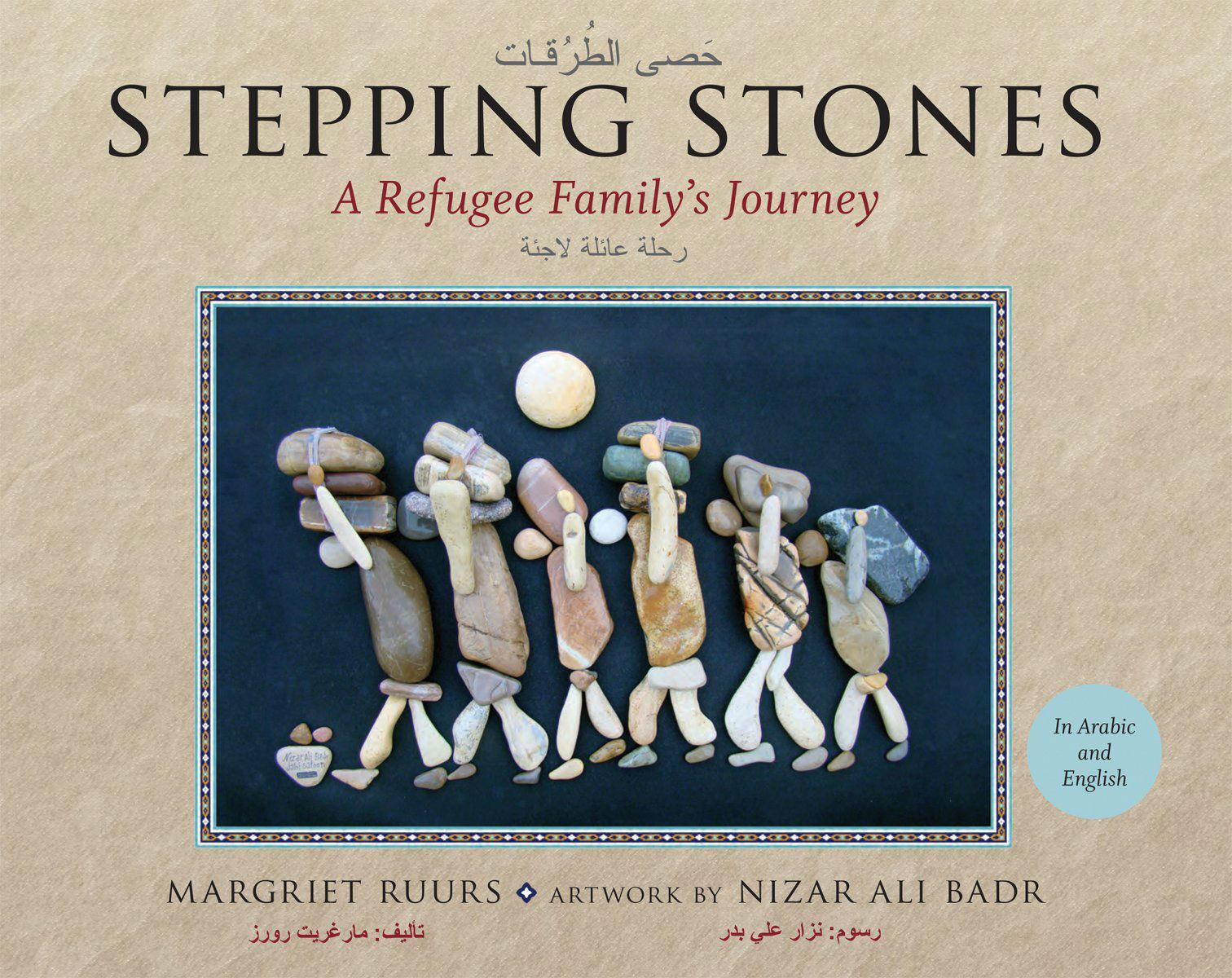
“When I began writing this book as a response to the Syrian refugee crisis, I had no idea how timely it would be when it finally came out,” he says.
Teachers and librarians have embraced these titles as a way to explain the refugee crisis to children, and Gratz has been invited to speak at more than 40 schools around America.
Mollee Holloman, an elementary school librarian in Manteo, North Carolina, who helped organise a recent book signing for Gratz that drew around 80 children, said she hoped Refugee would give children more empathy for those displaced by war. “He’s giving us the perspective of a child, and that helps these students see outside the world they’re living in,” Holloman says.
In Canada, where more than 33,000 Syrians resettled in 2016, picture books featuring Syrian refugee characters are being used in some public schools to explain the crisis and give students perspective on what some arriving Syrian students might have been through.
The Canadian children’s book author Margriet Ruurs has spoken to thousands of students at schools around the world about her book Stepping Stones, which follows a family fleeing a war in an unnamed country and features images by the Syrian artist Nizar Ali Badr, who uses small stones to create human figures.
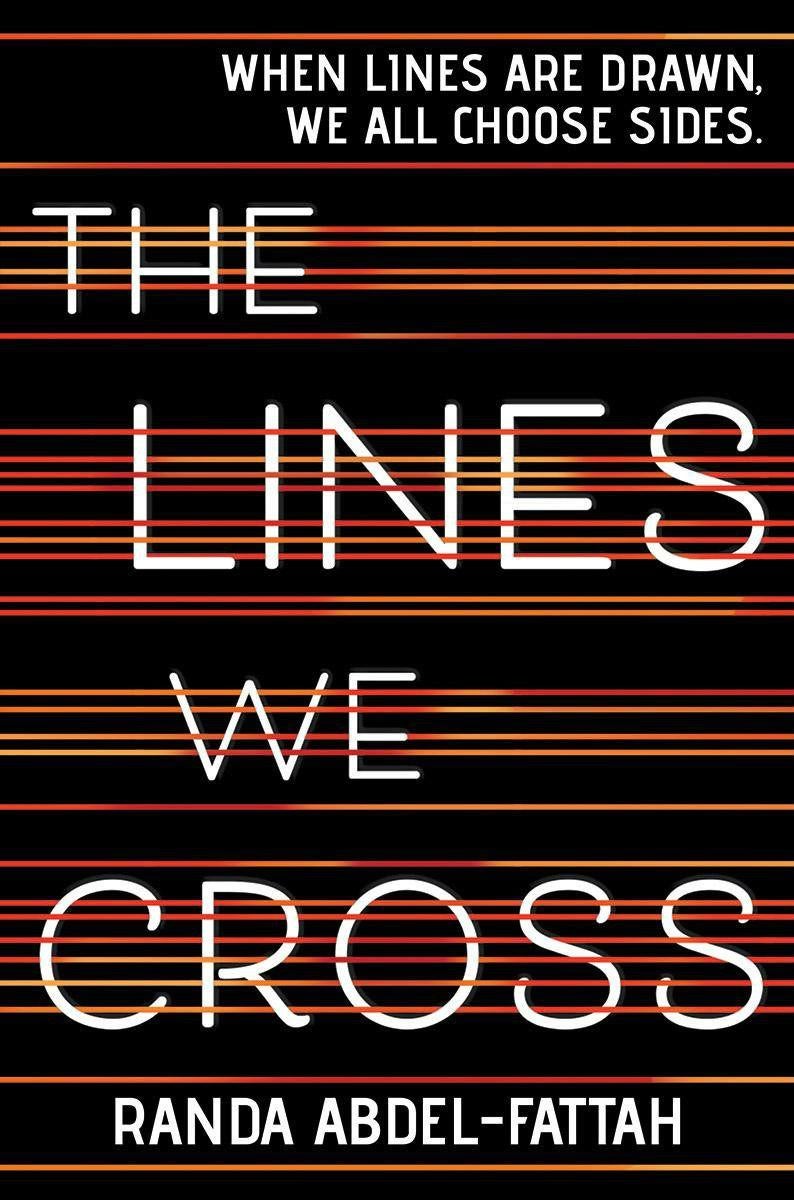
During a reading last autumn at a British Columbia library, Ruurs was joined by Serina Khaldi, a nine-year-old girl from Aleppo whose family recently settled in Salt Spring Island, where Ruurs lives. Stepping Stones has text in both English and Arabic, and Serina read the story in Arabic. “My daughter is very shy, but she was excited,” says Samer Khaldi, Serina’s father.
Carrie Gelson, an elementary school teacher in Vancouver, has used Stepping Stones and other picture books about Muslim refugees in social studies. She told the class, “You meet these students in your class and it’s important that you know their stories.” One of the picture books she read aloud was My Beautiful Birds, Del Rizzo’s story about a Syrian boy living in a refugee camp in Jordan.
Gelson was eager to share My Beautiful Birds with one student in particular: Nour Alahmad Almahmoud, a 12-year-old Syrian girl whose family came to Canada from a refugee camp in Jordan in late 2015. When Nour first read the book this spring, she was overwhelmed and ran outside in tears.
“I cried because it’s like this book makes me remember everything,” Nour says. “I felt like this family in the book is my family.”
She asked to take the copy home for the weekend to show her parents and siblings. Gelson told her the book was hers to keep.
© The New York Times
Join our commenting forum
Join thought-provoking conversations, follow other Independent readers and see their replies
Comments
Bookmark popover
Removed from bookmarks